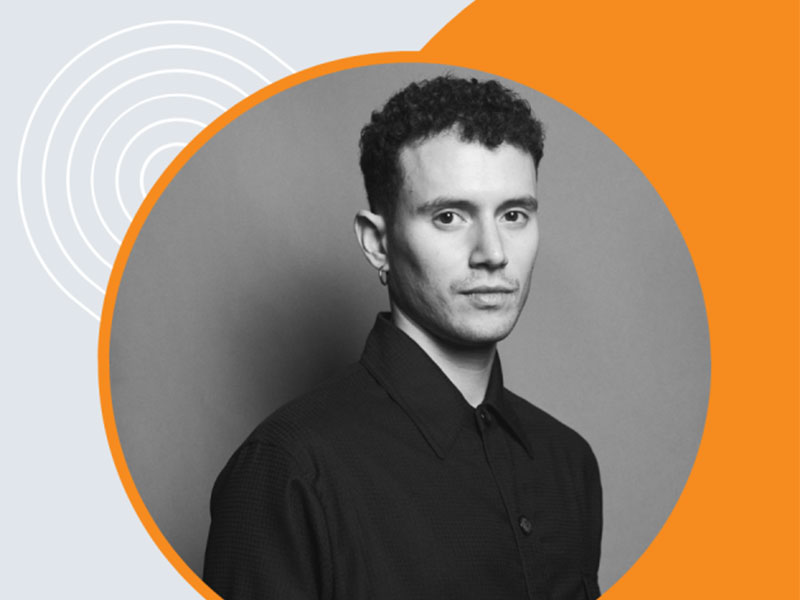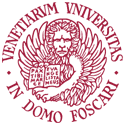Alessandro Vecchiato, Saint Laurent
A cura di VSM Alumni, febbraio 2025

From Management student to luxury professional in Paris
Alessandro Vecchiato is a Management alumnus whose background blends strategic vision with creativity. After completing his studies in Management between Ca’ Foscari University and ESCP Europe, he launched a brilliant career in the luxury sector, working with iconic brands such as Chanel, Céline, Armani, and Saint Laurent.
In this interview, Alessandro shares his journey between Italy and France, the challenges he faced transitioning to an international market, and his advice for young graduates eager to break into this exclusive and highly competitive industry.
Alessandro, how did your studies in Management prepare you for an international career in the luxury sector?
My international career didn’t begin with a pure focus on management but rather through a series of fortunate twists: from a passion for cooking that nearly led me to culinary school, to the dream of becoming a fashion designer, my path gradually shifted toward the business and economic sphere. I began with a diploma in accounting, followed by a Bachelor’s in Business Administration, a Master’s in Marketing and Innovation at Ca’ Foscari University of Venice, and a Master in Management at ESCP Europe.
Having a strong creative streak, by the end of my bachelor’s degree I found myself increasingly drawn to the world of fashion and luxury—a universe that felt distant, yet I never stopped observing. At the end of my academic journey, I faced a major decision: I had been admitted both to the London College of Fashion for a Master’s in Fashion Strategic Marketing, and to the double-degree programme at ESCP Europe in Paris. I ultimately chose the latter.
Unfamiliar with the French grandes écoles system at the time, I found that my Italian academic background—mostly theoretical with some practical cases—gave me solid foundations. I was then able to apply them in France, where theory was less emphasized, but enriched by real-life business cases, guest speakers, and projects with luxury companies, thanks to the geographical proximity and strong academic and professional networks.
This duality of educational approaches is what ultimately equipped me to enter the workforce with a generalist background, enhanced by specialist knowledge in Go-to-Market, Experience Management, and Fashion Marketing—core areas of the Master in Management—and by my own curiosity, which I continued to nurture beyond the classroom.
You’ve been living and working in Paris for nearly eight years. What motivated you to move to the global capital of luxury, and what drew you to the industry?
My move to Paris wasn’t premeditated. Initially, I had intended to relocate to an English-speaking country, as I’d been accepted to a specialized Fashion Marketing programme in London. At the same time, I was working for a brand based near Venice that showcased its collections in both Milan and Paris—so I was already experiencing the French market from up close.
After just a couple of weeks in the City of Light, I knew that my near future would be unfolding there.
What enabled me to take that leap was a mix of courage and self-honesty. I still remember my mother’s teary goodbye at the airport, telling me, “I know you won’t be coming back from Paris.”
My passion for the city, sparked during my studies, pushed me to stay longer.
My choice of industry stems from a personal sensitivity to creativity in fashion and art, paired with a strong desire to access the world of luxury—its products, its exclusivity, its uniqueness. These are concepts that resonate deeply in the roles I’ve held, which sit at the intersection of management and creativity—what Professor Monica Calcagno would call the “in-between spaces.”
Key elements in shaping my career have included a passion for product, client experience both in-store and online, and perhaps, at a deeper level, a natural affinity with the clientele of the luxury world.
Transitioning from the Italian market to an international one can be difficult. What challenges did you face working in France, and how did you overcome them?
One of the most noticeable differences is cultural—how work is perceived and valued in Italy versus France, both in terms of professional ambition and financial rewards. What helped me most was the network I built through my academic journey, as well as the professionals I had the pleasure of meeting along the way.
Over time, I also gained self-awareness and confidence in my own value, which proved essential for positioning myself in the market.
A non-trivial challenge was language. French had a big impact on my self-esteem and natural introversion. Overcoming fear of others’ judgment—and my own overly critical self-assessment—together with a genuine willingness to step outside my comfort zone, were crucial for my growth as both a person and a professional.
You’ve worked for prestigious companies such as L’Oréal, Chanel, Céline, Armani, and now Saint Laurent. What management skills proved most useful, and what key lessons did you learn from each experience?
Both in Venice and Paris, the key academic skills I developed were teamwork and analytical thinking, combined with attention to detail—without losing sight of the bigger picture.
Having worked across different environments, if I had to summarize the lessons learned, several practical points stand out: be courageous, know when to speak, when to stay silent, and when to push your ideas forward within a project; stay structured and keep your goals in mind, especially in situations of potential chaos. It’s important to collaborate with colleagues and external partners, and to challenge existing ideas when necessary.
From a personal growth perspective, the younger version of me was eager to jump into a managerial role right away. I quickly realized that ambition is key, but so is staying grounded. It’s important to dream big—but be pragmatic, too.
Adapting to different work cultures is the next big challenge: knowing when to challenge others and when to challenge yourself; accepting the pace of progress, enjoying the moment while never losing sight of your long-term goals.
In this context, kindness—and understanding how to navigate the environments you’re part of—becomes essential to advancing as one team, even when things feel fragmented.
Paris is more than just a city—it’s a true cultural and creative hub. How has living in this environment influenced your work and your perspective on the luxury sector?
Once you get past the initial cultural differences between Italy and France, immersing yourself in the Parisian mood—where art, fashion, and luxury are omnipresent—becomes the starting point of a constant quest, a search driven by curiosity.
Being constantly exposed to change, from new exhibitions in museums to spectacular brand events, this search becomes central to my work approach: a cultural search, an aesthetic one, and one rooted in experience, benchmarking, and networking.
It keeps me informed about what’s happening in the city and in key brands, and connects me with professionals from fields outside of pure management—people I can engage with in stimulating conversations that often turn out to be pivotal moments in my career.
What advice would you give to recent Management graduates who want to pursue a career in the luxury sector? Where should they start, and what experiences are essential to stand out?
If I could give advice to my younger self just starting out in academia and business, I’d reflect on three areas: personal attitude, professional experience, and side projects.
In terms of mindset: curiosity, humility, and openness are essential—but so is self-awareness: knowing who you are, what you dream of, and what you’re capable of.
When it comes to experience, my advice is to develop a creative mindset based on your personal inclinations, which will help clarify which sector and role you want to pursue.
For me, working in retail was essential to accessing roles in luxury—especially those that support retail. I’m not just talking about a short internship, but a longer experience—at least a couple of years—to really understand the dynamics of a boutique and the store–HQ relationship. And why not, even growing your career within retail itself.
Finally, don’t underestimate side projects—academic, personal research, events, association involvement… These may seem secondary at first glance, but recruiters highly value them because they reveal intellectual richness beyond your academic qualifications.

